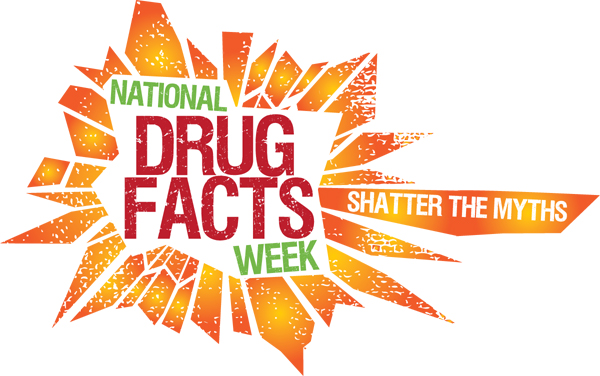National Drug Facts Week
National Drug Facts Week
 National Drug Facts Week is a health observance week developed by the National Institute on Drug Abuse (NIDA) for teens that aims to shatter the myths about drugs and drug abuse. National Drug Facts Week is celebrated at the Glen Cove High School and at the Finley Middle School. Each morning, drug facts are announced on the Public Address System and on the monitors for the student body. These announcements allowed for connections into the health education classes at the High School and Middle School throughout the week. Examples of drug facts announcements made in past years include the following:
National Drug Facts Week is a health observance week developed by the National Institute on Drug Abuse (NIDA) for teens that aims to shatter the myths about drugs and drug abuse. National Drug Facts Week is celebrated at the Glen Cove High School and at the Finley Middle School. Each morning, drug facts are announced on the Public Address System and on the monitors for the student body. These announcements allowed for connections into the health education classes at the High School and Middle School throughout the week. Examples of drug facts announcements made in past years include the following:
Contrary to common belief, marijuana is addictive. Estimates from research suggest that about 10 percent of users become addicted to marijuana; this number increases among those who start young to about 20 percent, or 1 in 5.
Ten percent of high-school seniors who report smoking marijuana daily or almost daily are well on their way to addiction and also function at a sub-optimal level all of the time.
Because it seriously impairs judgment and motor coordination, marijuana also contributes to accidents while driving. Several studies found that marijuana use more than doubles a driver’s risk of being in an accident.
Marijuana use during pregnancy is associated with increased risk of neurobehavioral problems in babies. Marijuana use by pregnant mothers may alter the developing brain of the fetus. Consequences for the child may include problems with attention, memory, and problem solving.
Marijuana smoke is an irritant to the lungs, and frequent marijuana smokers can have many of the same respiratory problems experienced by tobacco smokers, such as daily cough and phlegm production, frequent chest illness, and a heightened risk of lung infections.
A number of studies have shown an association between chronic marijuana use and mental illness. High doses of marijuana can produce a temporary psychotic reaction involving hallucinations and paranoia in some users
Associations have also been found between marijuana use and other mental health problems, such as depression, anxiety, suicidal thoughts among adolescents, and personality disturbances, including a lack of motivation to engage in typically rewarding activities. More research is still needed to confirm and better understand these linkages.
During health classes, students viewed a 10 minute video about former drug addicts who spoke about how their lives began to spiral out of control due to drug use and addiction. Then students engage in an educational card game called Wreck-Ed that allows them to think about and consider how drugs can interfere with their own life goals. The goal of the card game is to help youth come to the realization that drug use and abuse has many negative short-term and long-term consequences.
